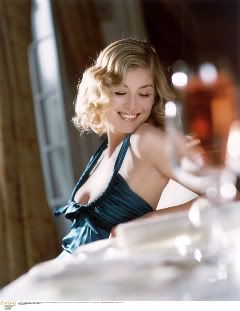While twelve readings of Pride and Prejudice give you twelve periods of pleasure repeated, as many readings of Emma give you that pleasure, not repeated only, but square and square again with each perusal, till at every fresh reading you feel anew that you never understood anything like the widening sum of its delights.Reginald Farrer
A BBC production of EMMA starts next week, on Sunday, on PBS, at 9:00. EMMA is considered Jane Austen's greatest novel, for its complexity of character and plot. Emma is in every sense an anti-heroine heroine, the first of her kind, a character who the reader at first finds difficult to love, and may never do, even once she repents of her "sins" toward the end of the novel.
She is given over to what Lionel Trilling considers "self-love". A narcissistic quality that is at once detestable and necessary. Emma depends on it more for self-preservation than a need to over-reach her boundaries. Although, as Trilling points out, self-love is a quality that allows Emma to become an almost revolutionary female character in 19th century literature:
We understand self-love to be part of the moral life of all men; in men of genius we expect it to appear in unusual intensity and we take it to be an essential element of their power. The extraordinary thing about Emma is that she has a moral life as a man has a moral life...And perhaps that is what Jane Austen meant when she said that no one would like her heroine -- and what Newman meant when he said that he felt kind to Emma whenever he thought of her. She needs kindness if she is to be accepted in all her exceptional actuality...It is the presumption of our society that women's moral life is not as men's. No change in the modern theory of the sexes, no advance in status that women have made, has yet contradicted this. The self-love that we do countenance in women is of a limited and passive kind, and we are troubled if it is as assertive as the self-love of men is permitted, and expected, to be. Not men alone, but women as well, insist on this limitation, imposing the requirement the more effectually because they are not conscious of it.
But there is Emma, given over to self-love, wholly aware of it and quite cherishing it. Mr. Knightley rebukes her for heedless conduct and says, "I leave you to your own reflections." And Emma wonderfully replies: "Can you trust me with such flatterers? Does my vain spirit ever tell me I am wrong?" She is "Emma, never loth to be first," loving preeminence and praise, loving power and frank to say so.
Inevitably we are drawn to Emma. But inevitably we hold her to be deeply at fault. Her self-love leads her to be a self-deceiver. She can be unkind. She is a dreadful snob.
When we have said that her fault is hubris or self-love, we must make an immediate modification, for her self-love, though it involves her in self-deception, does not lead her to the ultimate self-deception -- she believes she is clever, she insists she is right, but she never says she is good. A consciousness is always at work in her, a sense of what she ought to be and do. It is not an infallible sense, anything but that, yet she does not need us, or the author, or Mr. Knightley, to tell her, for example, that she is jealous of Jane Fairfax and acts badly to her; indeed, "she never saw [Jane Fairfax] without feeling that she had injured her." She is never offended -- she never takes the high self-defensive line -- when once her bad conduct is made apparent to her...There is, then, sufficient reason to be kind to Emma, and perhaps for nothing so much as the hope she expresses when she begins to understand her mistakes, that she will become "more acquainted with herself." And, indeed, all through the novel she has sought better acquaintance with herself, not wisely, not adequately, but assiduously. How modern a quest it is, and how thoroughly it confirms Dr. Leavis's judgment that Jane Austen is the first truly modern novelist of England...There is no reality about which the modern person is more uncertain and more anxious than the reality of himself.
---
Trilling, Lionel. "Emma and the Legend of Jane Austen", 1957








No comments:
Post a Comment